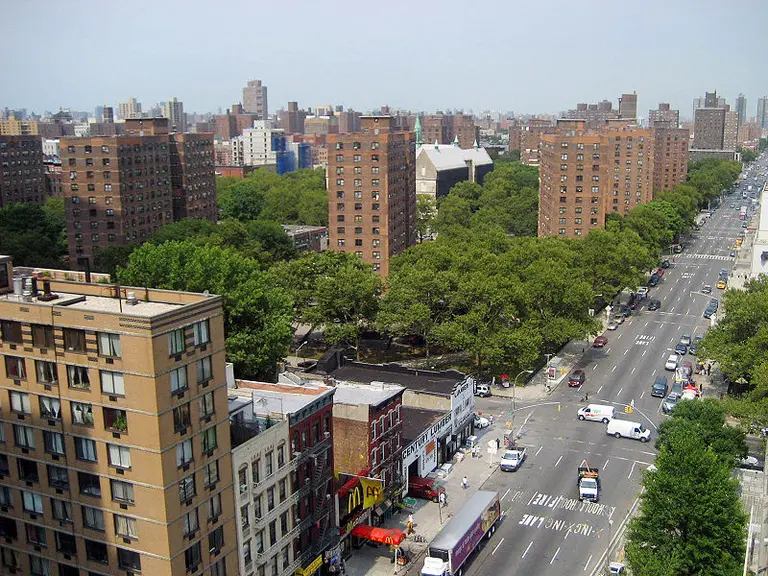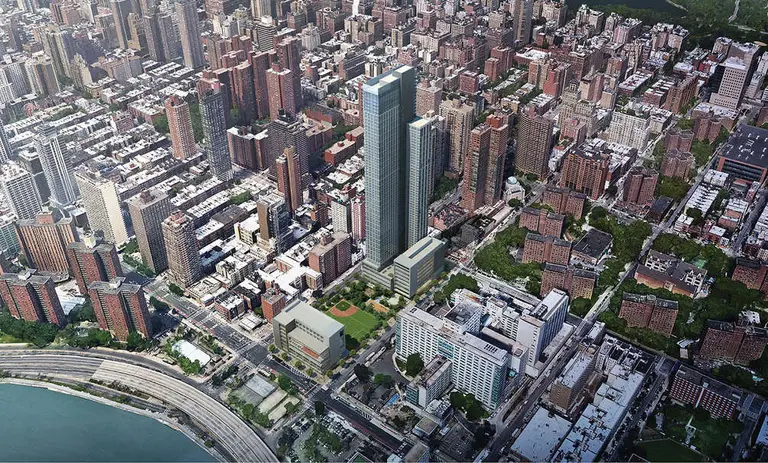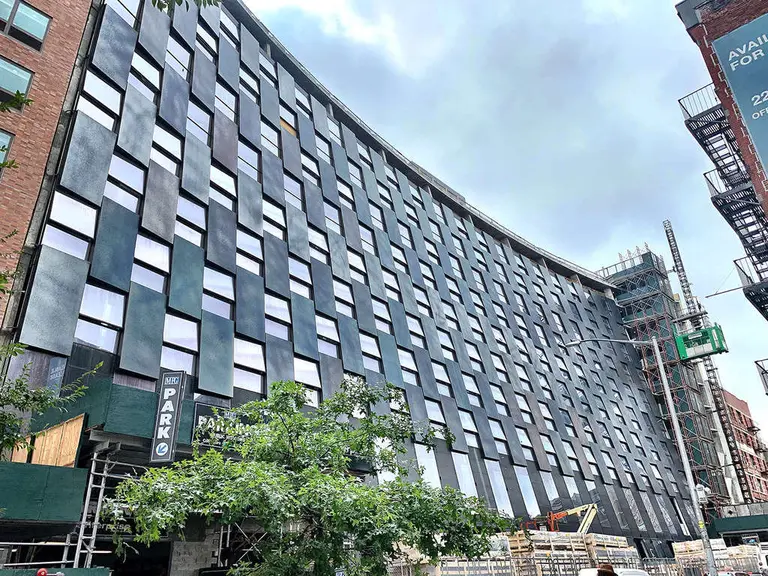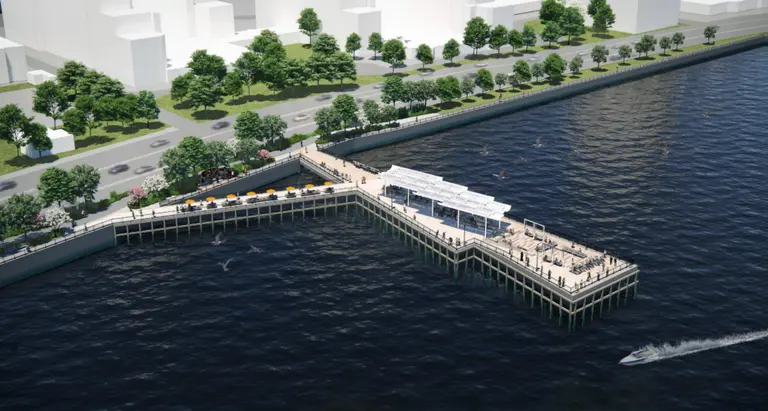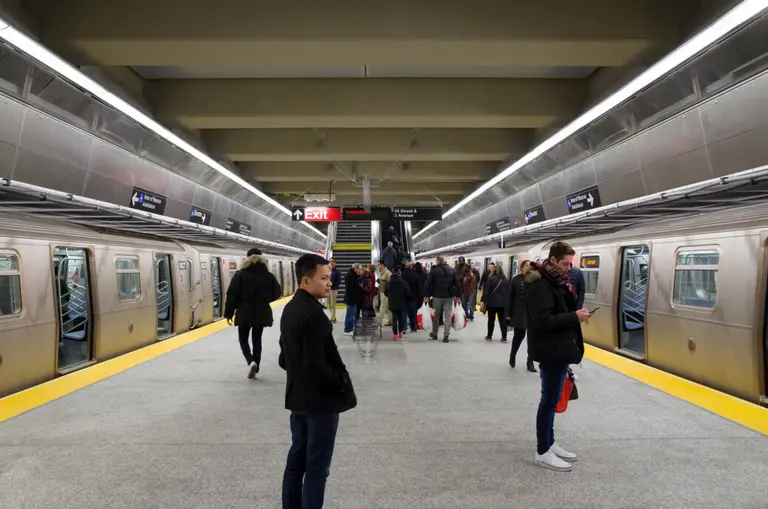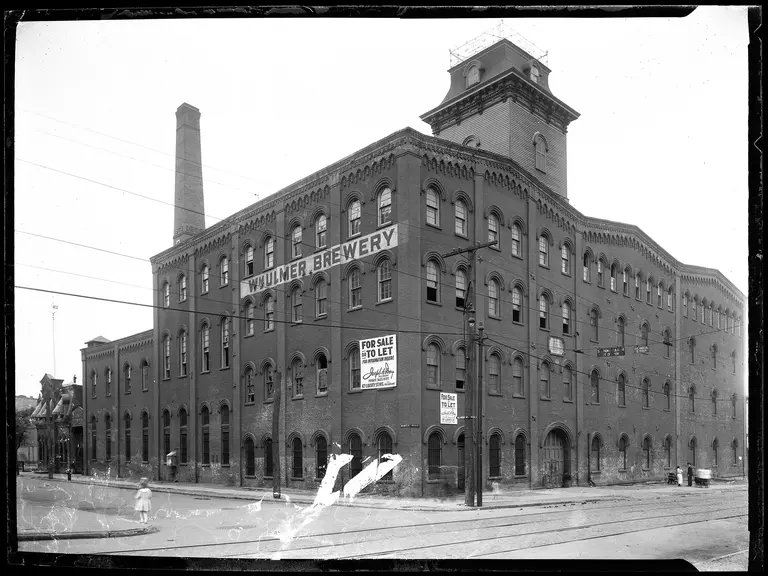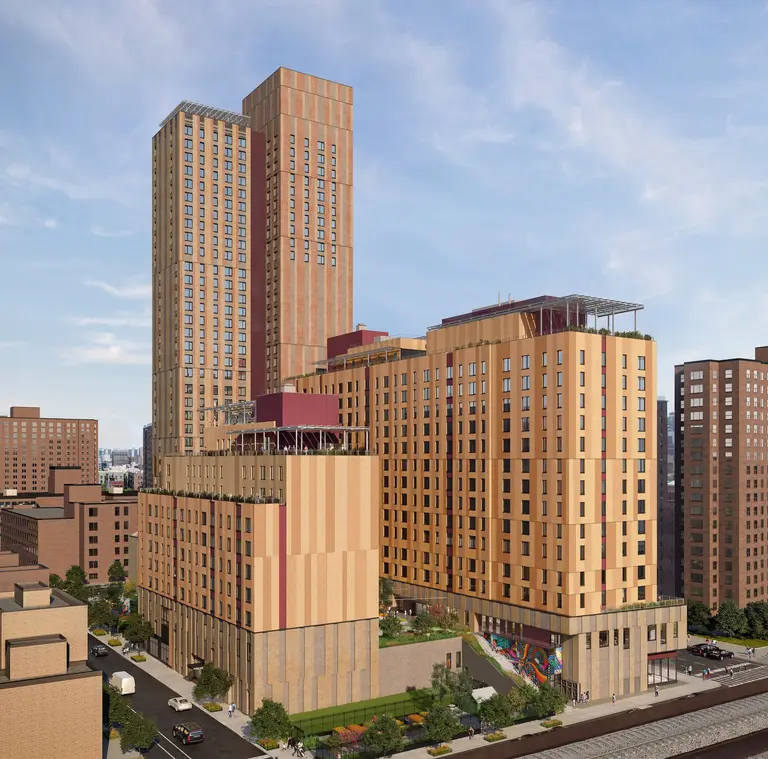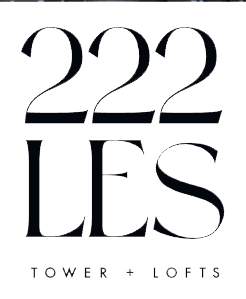Battle heats up over East Harlem park where a 760-foot tower is planned
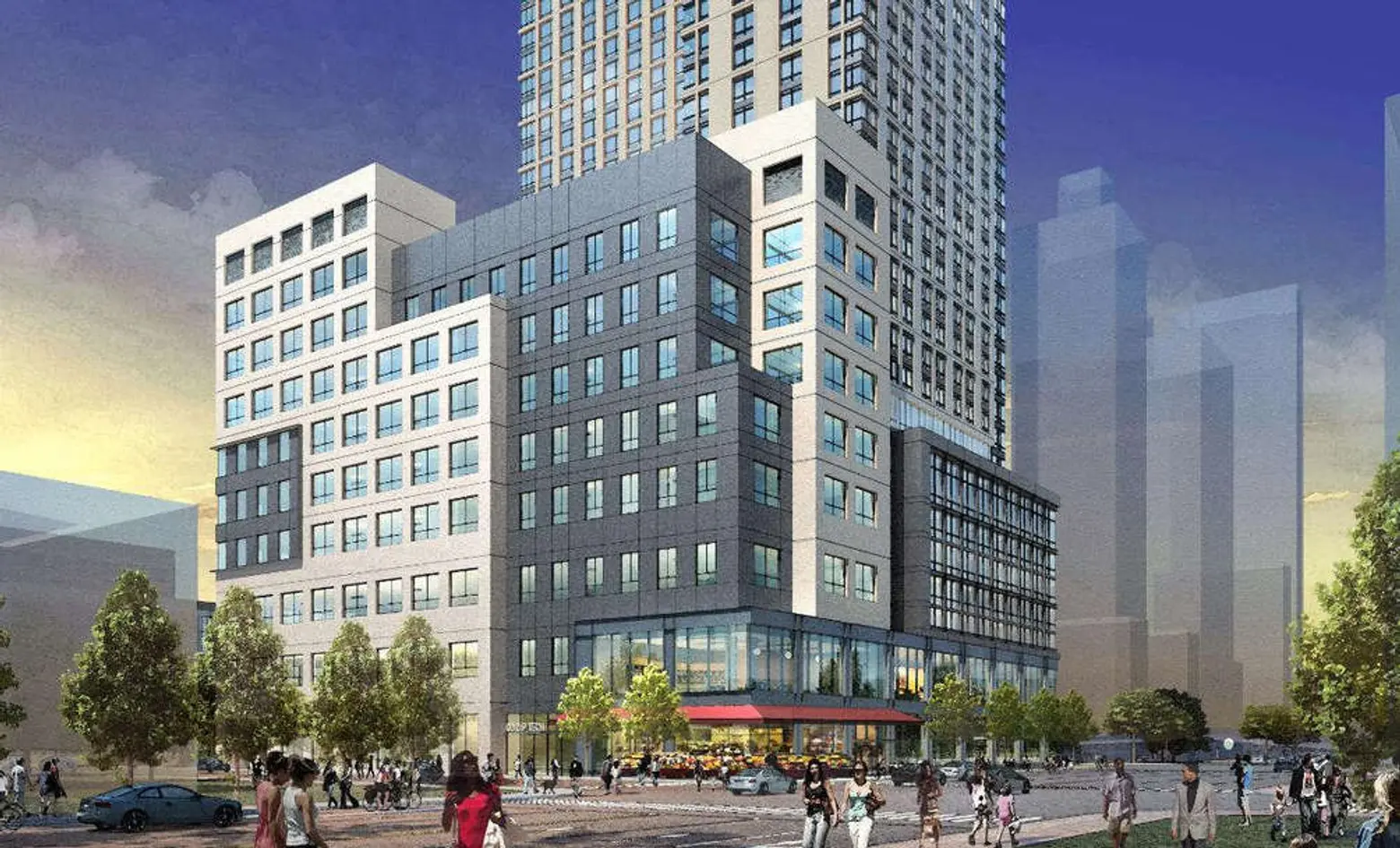
Rendering of 321 East 96th Street via Perkins Eastman Architect
Located on Second Avenue between East 96th Street and East 97th Street, the Marx Brothers Playground boasts a jungle gym and ball fields spread out over 1.5 acres. The East Harlem green space, which first opened in 1947 on land formerly occupied by the car barn of the Second Avenue Railway, has found itself at the center of a debate between preservationists and developers. As the New York Times reported, park advocates and city officials disagree on whether the parcel is considered a park or a playground. If it’s a park, any plans to modify it require the approval from the State Legislature and the governor; playgrounds do not. While it seems irrelevant, the categorization of the land will determine whether a 68-story mixed-use tower will rise on its site, a project backed by city officials and affordable housing advocates.
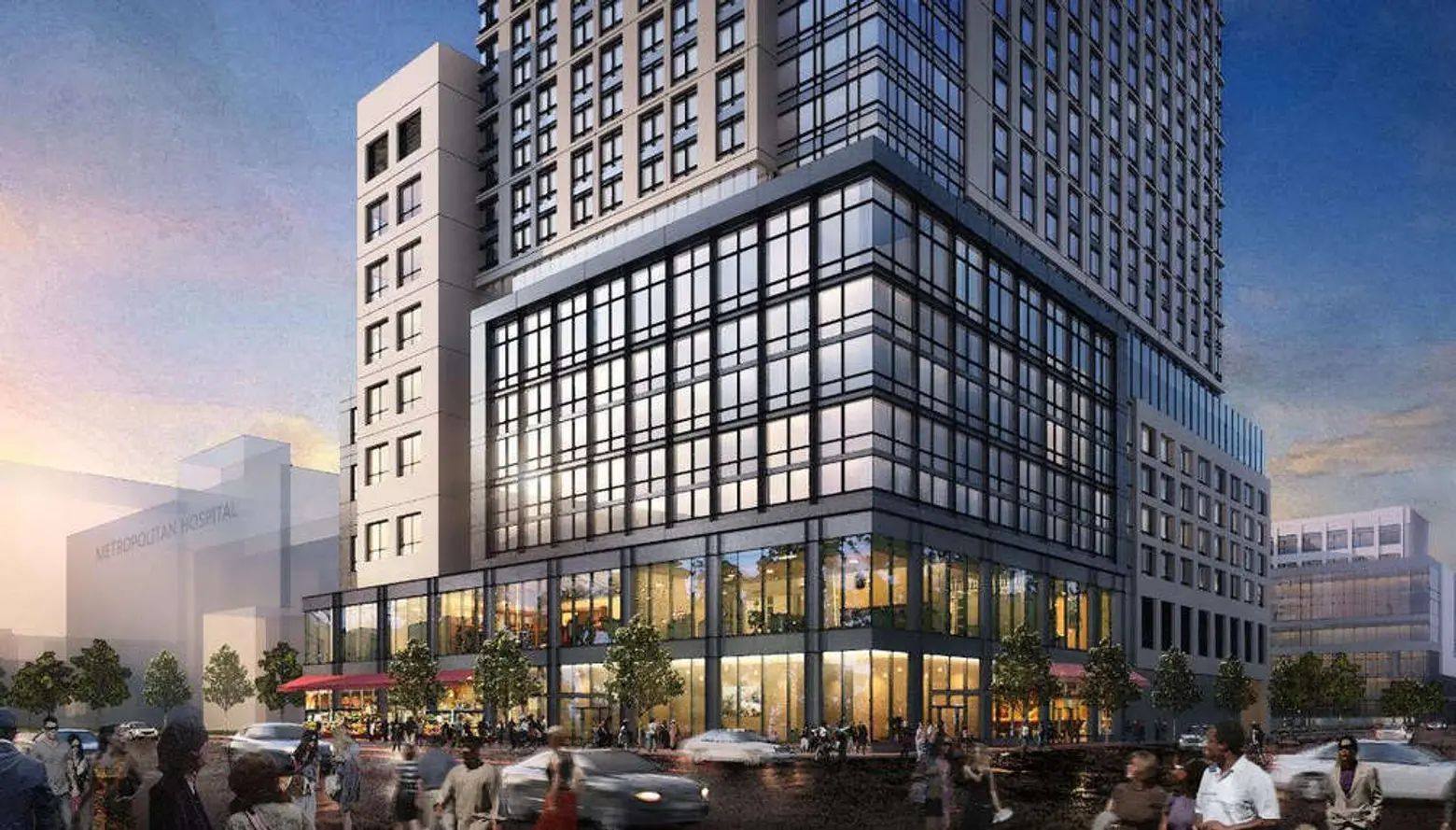
View from 96th Street and Second Avenue of the residential tower’s podium, via Perkins Eastman Architects
As 6sqft previously covered, the New York City Educational Construction Fund and AvalonBay Communities hope to build a more than 1 million square foot mixed-use development at 321 East 96th Street. The project calls for two new school buildings for three different schools in the area, 20,000 square feet of retail space and the 760-foot residential tower which would offer up to 1,200 units with 300 of them affordable. The tower would be the tallest tower north of 60th Street. AvalonBay also plans to build a new playground at the center of the complex, although the current one would be closed during construction.
Last month, local groups and preservation associations filed a lawsuit to block the project. And Gov. Andrew Cuomo plans to assign the commissioner of state parks, Rose Harvey, to investigate the site determine its legal status. Cuomo has previously expressed concerns that this project would set a dangerous precedent to let developers use space as state property instead of city property, letting them be exempt from the city’s zoning regulations. However, the governor has already signed a bill granting the developer permission to modify it, if no other legal challenges arise.
“Classification as a park or parkland should not provide zoning bonuses to private industry,” Cuomo wrote in a memo for the bill. “Confirming the status and nature of the land has significant legal implications for New York City and residents who want assurance that they will have access to outdoor recreation.”
Although the City Council, the local community board and Manhattan Borough President Gale Brewer approved the land-use proposal, open space advocates are not backing down.
Lynn Kelly, the executive director of New Yorkers for Parks, told the Times that adding both housing and educational infrastructure is critical, but the city should not have to choose between those spaces and open space. “To continue to minimize one over the other creates this impression to New Yorkers that parks and open space are an amenity as opposed to critical infrastructure, just like a school and just like affordable housing,” Kelly said.
[Via NY Times]
RELATED:
